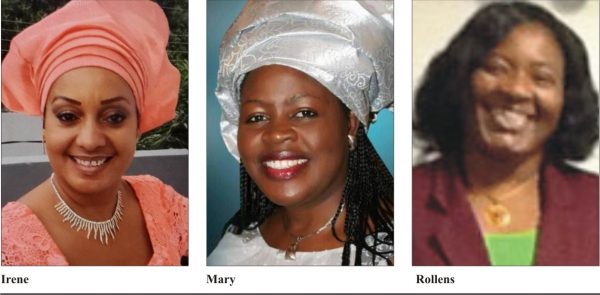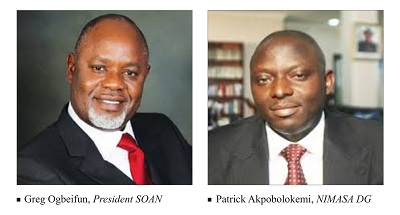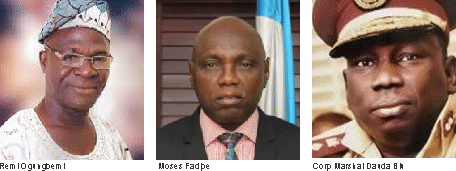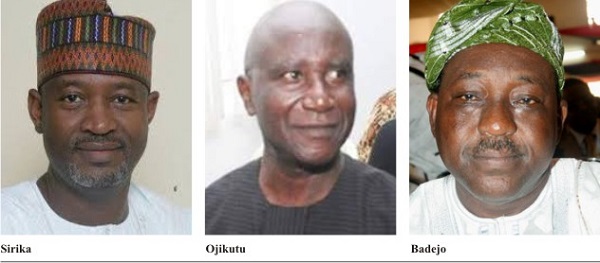Why Foreign Airlines Charge Colossal Sums From Nigerians
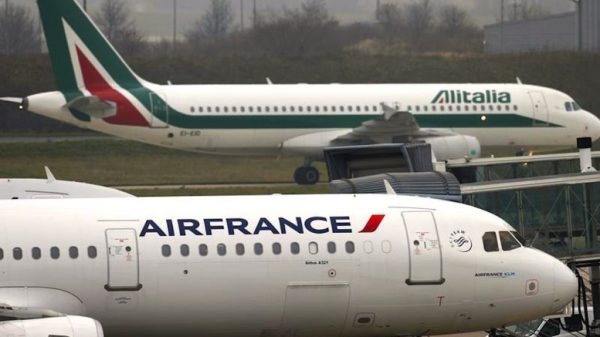 By Okuneye Moyosola
By Okuneye Moyosola
It has become the norm for foreign airlines operating in Nigeria to always charge exorbitant sums as air fares and Nigerian passengers travelling to other parts of the world have suffered this fiscal burden without relieve. While some of these foreign airlines have blamed the increase in airfares on factors such as poor airport infrastructure, multiple charges, expensive operating environment, economic recession and high cost of aviation fuel, the average Nigerian airport user continues to bleed dry.
Some experts have alleged that these factors have also discouraged foreign airlines from operating in the country, a situation which has made the aviation sector in Nigeria less competitive and also limited the variety of airlines available for travelers.
Nevertheless, some foreign airlines are still operating despite these challenges have stayed in the country because Nigeria is a very lucrative market for international carriers. Most European carriers like British Airways, Lufthansa, Air France, KLM and others make the highest profit per flight from the Nigerian market. Sadly, they make this profit by fleecing Nigerians with ridiculously exorbitant airfares.
As foreign airlines admit that Nigeria is a lucrative route in terms of profit per flight, MMS Plus takes a thorough look at the issues. Our research revealed that a Nigerian passenger pays a higher fare per distance compared to what is obtainable in other country in the region.
For example, a Nigerian travelling in the First Class cabin of British Airways is made to pay between $9,285 and $10,070 to fly 5001km in 5hrs 55mins into Heathrow, depending on the season, as there are high and low seasons, the Ghanaian pays less than half of that, about $4,943 to fly 5,096.79km in 6hrs 55mins. Aviation fuel plays a key role here and it is simple mathematics that the aircraft would burn more fuel flying longer hours. Similarly, the Nigerian traveler from Lagos or Abuja to London pays about $7,367 to fly the Club Class cabin Virgin Atlantic Airways, as there is no First Class cabin in the airline, but the Ghanaian pays $4,136 for same journey in the same class cabin.
Similarly, flying from Lagos to Frankfurt in the First Class cabin of Lufthansa Airlines, the Nigerian traveler pays between $8,195 and $9,350, depending on the season, while those travelling from Accra to the same destination pay $4,719. The same thing applies to KLM/Air France Club Class cabin which attracts between $5,146 and $7,036 for the Nigerian and between $3,189 and $5,271 for the Ghanaian traveler.
This scenario is the same on routes outside West Africa and the continent. For instance, Nigerians pay more on British Airways First Class cabin flight from Lagos to London Heathrow which is 5hrs 55mins flight than an American will pay from Boston, USA to Heathrow airport, UK which is 7hrs 30mins. So also is from New York, USA to Heathrow, UK which is 7hrs 30mins. A survey of all the major Nigerian routes flown by the foreign airlines in the country showed that the cost of return tickets had been increased by between 80 per cent and 120 per cent of the previous fares, depending on the carrier, time of booking and the passenger’s volume.
The International Air Transport Association (IATA) had projected that the aviation industry in Nigeria could directly and indirectly employ one million persons and generate multiple earnings from the industry if the country’s local airlines could be empowered and if Africa embraced the Yamoussoukro Declaration, which is open sky for Africa. Yamoussoukro Declaration (YD) seeks to curb the excessive invasion in Africa of mega carriers from Europe and the Middle East as they take about 80 per cent of the market from the continent.
However, in January 2018, local airline operators kicked against implementing the Yamoussoukro Declaration (YD) because it will lead to the total demise of Nigerian airlines especially with the inherent challenges the airlines currently face. Experts have also said that the Yamoussoukro Declaration (YD) could only be achieved if Nigeria has strong local carriers that would be able to create employment and operate profitably. Profitable local carriers would in turn create other jobs in the area of catering, cargo services, charter services, maintenance organizations and handling services.
“The biggest driver here is demand and demand simply drives the cost. They don’t put into consideration whether Nigerians have money to pay. Nigerians too will accept it like that because they have money to pay. With demand comes increase with price”.
Speaking on how to address the issue, he said; “Nigerians should begin to ask for value for their money. We shouldn’t just pay because we have the money. There is no competition in Nigeria’s aviation sector, so these foreign airlines just come in and do what they like”.
The Director, Transport Research and Intelligence (NITT) Zaria, Dr. Danjuma Ismalia also spoke extensively on the issue.
Danjuma lamented that the problem has been in existence for a long time, noting that the pricing mechanism of airlines depend on so many parameters.
According to him, some of the germane factors are taxation and competition. “One of the factors is to consider if these markets have similar taxation. If there is a disparity in the taxation, definitely the price is going to differ. Competition is also another factor. Where there is less competition, the airline tends to maximize this opportunity so they can extort the market”
“For example, if there is high demand in Lagos without commensurate supply of the air services by airlines, the price would go up. However, if there is sufficient supply and lower demand, then it will lead to lower prices in that market. So, these are the things that need to be considered when comparing the Nigerian market with other markets even in the continent. We are also in a liberalized market, a free market economy and you cannot force anybody to fix a price”, he added.
According to him, the purpose of travelling and class of passenger is a major determinant in difference of air fares among countries.
“Sometimes, airlines are smart enough to know the class of passengers travelling through a particular route. Most of the passengers travelling from Nigeria to other countries are mostly business travelers. And these set of people would not mind to purchase the ticket at any cost. However, the leisure travelers are price sensitive; they only prefer the price when it’s cheap. So, when they realize that the price has changed they can decide to cancel the trip because they might be travelling out for holiday or to pay a visit to a friend and this is not an essential journey. A business traveler is being sponsored by his employer and if the employer knows that the value of travel is for economic gain, they wouldn’t mind spending any amount of money”.
He noted that a large percentage of passengers in Nigeria are travelling for business purpose adding that a business traveler would not think of the price of air fare in this situation.
“These foreign airlines could have discovered that Nigerian travelers are mostly business travelers which I did a research on some years back. 70 percent of Nigerian travelers are business travelers who are been sponsored so they can easily extort because they are not bothered about the price. Meanwhile, these airlines in other countries might have also noticed that the travelers are not major travelers. They could just travel for holidays and other unnecessary journey which is paid by them, hence they reduce the price”.
Dr. Danjuma also noted that the time factor as regards booking of flight also affect price of air fares.
“If I book my flight 3 months before the time, I’ll get cheaper tickets but someone who booked 3 days before the departure, might buy a ticket 4 times the price of someone who has booked earlier. Normally buying ticket at late hours has to do with business travelers.
He opined that some of the foreign airlines are charging high fares because of the image they have created which has made them to be patronized by to dignitaries and government functionaries.
Highlighting his experience with one of the local airlines, Danjuma stressed that most indigenous carriers are known for disappointing passengers adding that people would prefer to travel with foreign airlines which are safe, reliable and consistent.
The problem of high fares among foreign airlines in the country could be reduced if local airlines would be able improve their capacity to compete with the foreign airlines. Federal government should also empower and encourage local carriers so that they can meet up to the standards of these foreign airlines which will be beneficial to the passengers and the country’s aviation sector at large.



